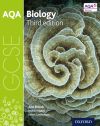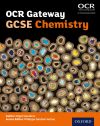- Home
 Primary Teachers
Primary Teachers
 Secondary Teachers
Secondary Teachers
GCSE Sciences 9–1
Supporting you through the GCSE science changes
As you know, a number of changes were made to GCSE sciences in September 2016, with updates to the specifications that will impact both teachers and students. You'll find a summary of the changes along with support and information to help you manage these changes below.
What's changed?
- Linear exams: The new GCSEs will now be assessed by exam only, and there will no longer be a controlled assessment component. Students will sit all exams at the end of two years.
- New grades 9–1: The new GCSEs will be graded 1 to 9, with 9 being the top grade, to allow greater differentiation between students
- Increased maths requirement: There is increased and more challenging mathematical content
- Practicals: Practical skills are now assessed by exam only, and at least 15% of the total marks for each GCSE will be dedicated to scientific experimentation questions
- More demanding content: New topics include monoclonal antibodies in biology, life cycle of materials in chemistry and electric fields in physics
How we can help
We've published brand new resources specifically matched for the new (9–1) specifications, covering the new topic requirements and with full support for the required practicals. We've also developed a new five-year assessment model matched to the new 9–1 grades, so you can continue to track your students' progress right through from KS3.
In addition to this, Kerboodle includes a range of support for the increased maths requirements, with interactives and support sheets as well as direct links to resources on MyMaths.co.uk.
New resources for the GCSE Science (9–1) specifications
A five-year assessment model for KS3 and GCSE
Download five-year assessment presentation
Download a summary of Andrew Chandler-Grevatt's Five Year Assessment Model presentation from ASE Conference 2017.
Useful links
© 2024 Oxford University Press. All rights reserved.

 Show all resources in GCSE Sciences 9–1
Show all resources in GCSE Sciences 9–1




